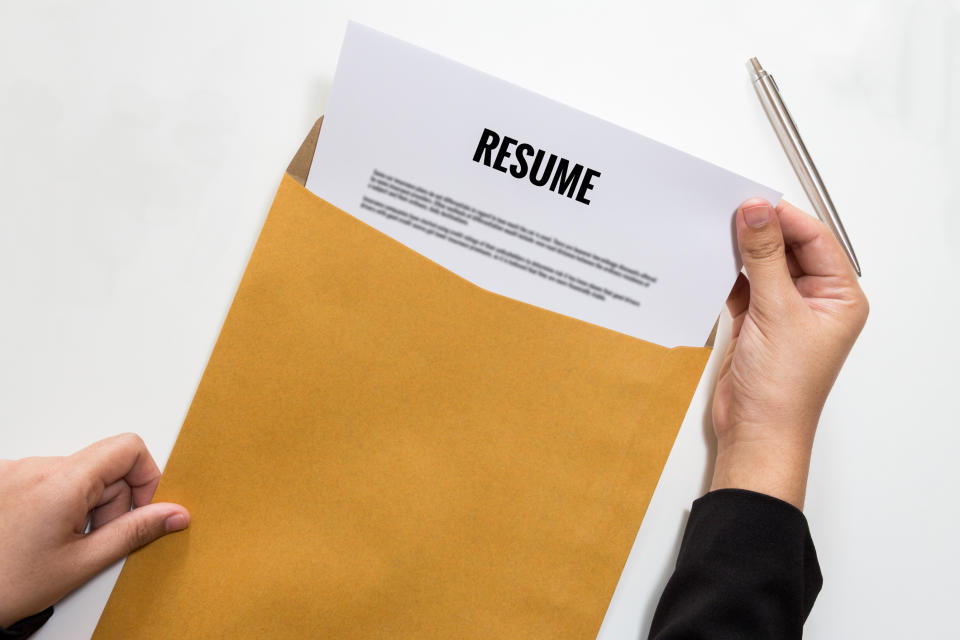5 resume mistakes to avoid and what to do instead

Let’s face it, getting any job can be tough, let alone landing the one you’ve always dreamt of doing.
The first challenge typically is getting onto the interview shortlist. In the vast majority of cases the hiring manager or recruiter will be inundated with applications, many of which are from unqualified but none the less hopeful candidates.
Deciding who to interview can be a time-consuming task and most will be keen to get through it quickly.
Research shows recruiters spend on average only six seconds reading a CV before reaching a decision about whether or not the candidate is worth considering further. That’s not a lot of time to impress them, so what you write and how you write it needs to get their attention for all of the right reasons.
Also read: Applying for a job? Here’s what the perfect resumé looks like
Also read: Delete these eight words from your resume immediately
Also read: How to win a job in 6 seconds
While of course each recruiter is different, common things they are looking for include how long you typically stay in a role, whether or not you have the minimum education requirements, and how well you have progressed in your career to date.
They are also judging your character. First impressions of the person you are, as reflected through the details you include and words you use, undoubtedly impact upon their decision to put your CV on the yes or no pile.
Here are five common resume mistakes you need to avoid:
Spelling mistakes and grammatical errors
Start with getting the basics right.
If your CV is riddled with typos or poorly constructed sentences, you’re unlikely to make it onto the shortlist, no matter how attractive your experience or qualifications are.
Don’t rely on spelling and grammar check software. Review your CV for common mistakes such as the use of they're vs. their vs. there. Or your vs you’re.
If you are applying for a role that requires attention to detail with accuracy being a key measure of success, triple check your CV for big and small errors.
Inconsistent dates and unexplained gaps
If it’s hard to work out where you have worked and when, the reader may be tempted to prematurely move on from your CV.
If you have taken a career break, include that information and give insight to the reasons. If your role has been made redundant, don’t be tempted to hide that fact in your employment history.
Typically, attempts at veiling the truth are transparent and undermine the recruiters trust in the candidate’s character. Give a full and honest account of your employment history, and include short explanations as to why you have moved on from each role.
Focusing on tasks rather than achievements
Recruiters typically want more than a description of what you have been employed to do in the past.
Most are more interested in what successes you have been able to contribute to, and what you want to do in the future. Avoid the common mistake of simply ‘cutting and pasting’ sections of your job description into your CV.
Candidates who do risk being perceived as lazy or lacking understanding of what the employer is looking for.
Exaggerating
Avoid the temptation to inflate roles you have played or outcomes you have achieved.
While it’s essential that you showcase how you have delivered and been a valuable contributor in the past, you’re unlikely to be invited for an interview if claims you make are hard to believe.
Share credit where it is due. If you were a member of a team that achieved a particular result, disclose that fact. If you believe you have the potential to step up into a bigger role, articulate why you believe you are ready, don’t try to create a perception you have experience to bring that you don’t.
Verbosity
How long a CV should be is a common question people ask.
The answer depends on the role, career industry and length of your employment history.
Some organisations still look for extensive CVs with detailed descriptions of each job, but in my experience that is rare.
Most employers are looking for the executive summary version that provides a snapshot view into your skills, experience, qualifications and achievements.
Avoid long winded descriptions. Focus on the information an employer really needs to know in order to recognise that you are a good candidate for the job.
Karen Gately, founder of Corporate Dojo, is a leadership and people-management specialist. She is the author of The People Manager’s Toolkit: A Practical guide to getting the best from people (Wiley) and The Corporate Dojo: Driving extraordinary results through spirited people. For more information visit www.corporatedojo.com or contact info@corporatedojo.com.
Make your money work with Yahoo Finance’s daily newsletter. Sign up here and stay on top of the latest money, news and tech news.

 Yahoo Finance
Yahoo Finance 